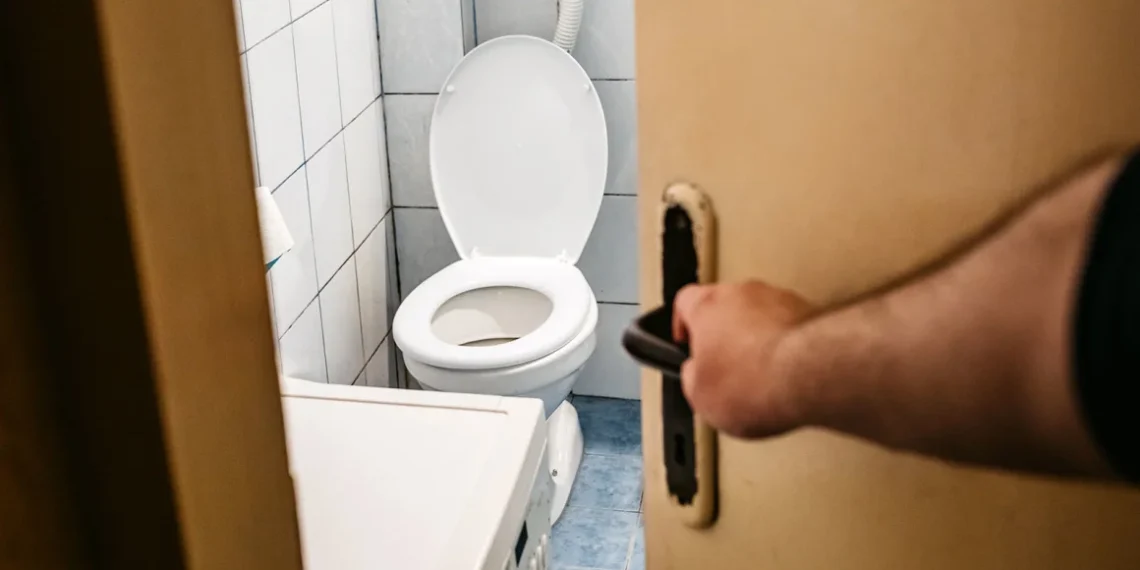What Your Peeing Frequency Says About Your Health
We often hear a lot about how frequently people should poop, with experts suggesting that it varies depending on various factors. But what about urination? How often should you pee, and what does your frequency say about your health?
How Often Should You Pee?
According to Dr. Jamin Brahmbhatt, a urologist at Orlando Health, the average person should urinate about six to eight times a day. Ideally, you shouldn’t be waking up at night to pee, but if you find yourself getting up more than once, it could be an indication that something isn’t quite right. During the day, it’s normal to pee every three to four hours.
However, some people may urinate up to 10 times a day, especially if they’re drinking a lot of water or beverages that stimulate frequent urination, like coffee, tea, or alcohol. These drinks can have diuretic effects that irritate the bladder. Dr. David Shusterman, a board-certified urologist, advises those bothered by frequent trips to the bathroom after drinking these beverages to cut back on caffeine or alcohol, or try diluting them.
Everyone’s body is different, and there’s no “one-size-fits-all” rule. What’s most important is knowing what’s normal for your body. If you suddenly find yourself running to the bathroom much more or much less than usual, and it’s affecting your daily life, it might be time to check in with a doctor.
Excessive Urination: What Could Be the Cause?
If you’re urinating more than usual and it’s not related to your beverage intake, several medical conditions could be to blame. Overactive bladder syndrome, diabetes, urinary tract infections (UTIs), or medications like diuretics (commonly prescribed for high blood pressure) can cause excessive urination.
Urination is controlled by a complex neurological system involving the bladder, urethra, and brain. Conditions that affect this system, like stroke, spinal cord injuries, and neurological diseases such as Parkinson’s, multiple sclerosis, and even tumors, can also lead to frequent urination.
Pregnancy can also contribute to more frequent urination since increased fluid intake and metabolic changes put more pressure on the bladder. In addition, stress and anxiety can stimulate the bladder, increasing the need to pee, as the body releases adrenaline during the fight-or-flight response.
For women, hormonal changes — especially during menopause — can affect urination. Reduced estrogen levels can lead to an overactive bladder. Dr. Jason Kim, a clinical associate professor of urology, explains that estrogen receptors are present in the bladder, which is why treatments like vaginal estrogen creams can be beneficial in managing overactive bladder symptoms.
When to Seek Help
If you notice that your frequent urination is affecting your quality of life, or if you’re waking up at night to pee regularly, it may be time to consult a urologist. They can help determine whether bladder training exercises or other treatments, such as medications, bladder Botox injections, or nerve stimulation, are necessary.
Bladder Botox, for instance, weakens the bladder’s nerves to reduce involuntary contractions and decrease the urge to urinate. This can be far more effective than medications for many patients.
Not Peeing Enough: What Does It Mean?
On the flip side, if you find that you’re only peeing every six to eight hours or less than four times a day, this could be a sign of dehydration or a problem with your bladder or kidneys. Low urinary frequency can increase your risk of developing a urinary tract infection (UTI), as regular urination helps flush out harmful bacteria.
If you’re not urinating often, make sure you’re getting enough fluids. The National Academy of Medicine recommends that women consume 2.7 liters (91 ounces) of fluids daily, and men should aim for 3.7 liters (125 ounces). This includes all fluids and water-rich foods, like fruits and vegetables.
If you’re holding it in too long, this could cause long-term damage, leading to kidney infections or weakened bladder muscles. If you are still not urinating enough despite maintaining healthy hydration, it’s time to see a doctor.
Why Aren’t You Peeing Enough?
Not urinating frequently enough could indicate an obstruction, such as a blocked urethra, or it could be a behavioral issue, especially for men as they age and experience prostate enlargement. For women, a tightened urethra could contribute to retention issues.
Neurological conditions like those mentioned earlier can also affect urinary function.
Treatment for Infrequent Urination
Unfortunately, there are fewer treatments available for underactive bladder. Depending on the cause, treatment options include self-administered catheterization, long-term catheterization, or sacral neuromodulation — a procedure that involves a bladder pacemaker to regulate urination. These treatments can be life-changing, so if you’re dealing with underactive bladder issues, don’t hesitate to seek help.
Conclusion
Your urination frequency can be a key indicator of your overall health. Whether you’re peeing more or less than usual, it’s important to understand what’s normal for you and take action if something changes. If you’re concerned, speak to a urologist who can help you get to the root of the issue and find an appropriate solution.
This article was rewritten by JournosNews.com based on verified reporting from trusted sources. The content has been independently reviewed, fact-checked, and edited for accuracy, neutrality, tone, and global readability in accordance with Google News and AdSense standards.
All opinions, quotes, or statements from contributors, experts, or sourced organizations do not necessarily reflect the views of JournosNews.com. JournosNews.com maintains full editorial independence from any external funders, sponsors, or organizations.
Stay informed with JournosNews.com — your trusted source for verified global reporting and in-depth analysis. Follow us on Google News, BlueSky, and X for real-time updates.














